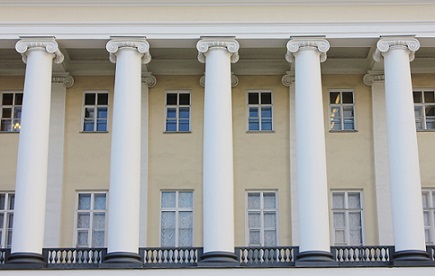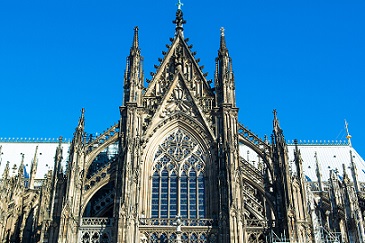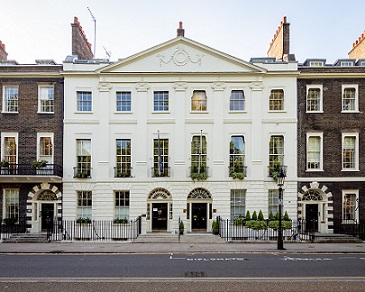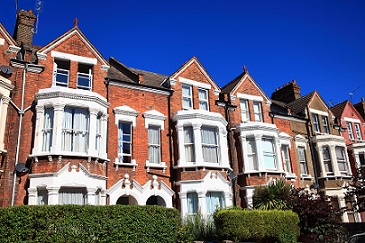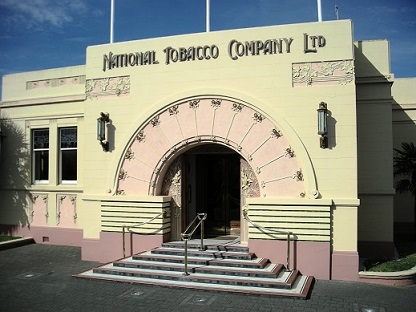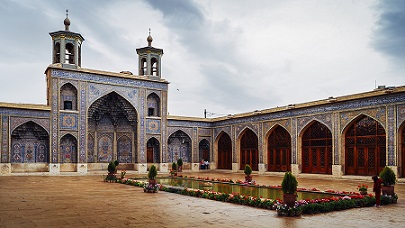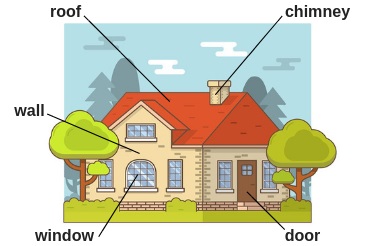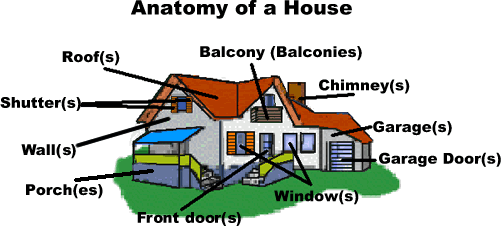Below are 333 high frequency words which would be helpful in building your vocabulary. You can set a goal of 21 days to get familiar with all the 333 words in the list below:
Also Recommended for you:
Vocab Word List
Abate – v – subside or moderate.
Aberrant – adj – abnormal or deviant
Abeyance – n – suspended action
Abscond – v – depart secretly and hide
Abstemious – adj – sparing in eating and drinking temperate
Admonish – v – warn; reprove.
Adulterate – v – make impure by adding inferior or tainted substances
Aesthetic – artistic dealing with or capable of appreciating the beautiful
Aggregate – v – gather; accumulate
Alacrity – n – cheerful promptness; eagerness
Alleviate – v – relieve
Amalgamate – v – combine; unite in one body
Ambiguous – adj – unclear or doubtful in meaning
Ambivalence – n – the state of having contradictory or conflicting emotional attitudes
Ameliorate – v – improve
Anachronism – n – something or someone misplaced in time
Analogous – adj – comparable
Anarchy – n – absence of governing body; state of disorder
Anomalous – adj – abnormal; irregular
Antipathy – n – aversion; dislike
Apathy – n — lack of caring; indifference
Appease – v – pacify or soothe; relieve
Apprise – v — inform
Approbation – n – approval
Appropriate – acquire; take possession of for one’s own use
Arduous – adj – hard; strenuous
Artless – adj – without guile; open and honest
Ascetic – adj – practicing self-denial; austere
Assiduous – adj- diligent
Assuage – v – ease or lessen (pain); satisfy (hunger); soothe (anger)
Attenuate – v – make thinner; weaken or lessen (in density, force, degree)
Audacious – adj – daring bold
Austere – forbiddingly stern; severely simple and unornamented
Autonomous – self-governing
Aver – assert confidently or declare; as used in law, state, formally as a fact
Banal – hackneyed; commonplace; trite; lacking originality
Belie – contradict; give a false impression
Beneficent – kindly; doing good
Bolster – support; reinforce
Bombastic – pompous; using inflated language
Boorish – rude; insensitive
Burgeon – grow forth
Burnish – make shiny by rubbing; polish
Buttress – support; prop up
Cacophonous – discordant; inharmonious
Capricious – unpredictable; fickle
Castigation-punishment; severe criticism
Catalyst – agent that influences the pace of a chemical reaction while it remains unaffected and unchanged; person or thing that causes action
Caustic – burning; sarcastically biting
Chicanery – trickery; deception
Coagulate – thicken; congeal; clot
Coda – concluding section of a musical or literary composition; something that rounds out, summarizes, or concludes
Cogent – convincing
Commensurate – corresponding in extent, degree, amount; proportionate
Compendium – brief; comprehensive summary
Complaisant – trying to please; overly polite; obliging
Compliant – yielding; conforming to requirements
Conciliatory – reconciling; soothing
Condone – overlook; forgive; give tacit approval; excuse
Confound – confuse; puzzled
Connoisseur – person competent to act as a judge of art
Contention – claim; thesis
Contentious – quarrelsome
Contrite – penitent; repentant
Conundrum – riddle; difficult problem
Converge – approach; tend to meet; come together
Convoluted – coiled around; involved; intricate
Craven – cowardly
Daunt – intimidate; frighten
Decorum – propriety; orderliness and good taste in manners
Default – failure to act
Deference – courteous regard for another’s wish
Delineate – portray; depict; sketch
Denigrate – blacken
Deride – ridicule; make fun of
Derivative; unoriginal; obtained from another source
Desiccate – dry up
Desultory – aimless; haphazard; digressing at random
Deterrent – something that discourage; hindrance
Diatribe – bitter scolding; invective
Dichotomy – split; branching into two parts (usually contradictory)
Diffidence – shyness
Diffuse – wordy; rambling; spread out
Digression – wandering away from the subject
Dirge – lament with music
Disabuse – correct a false impression; undeceive
Discerning – mentally quick and observant; having insight
Discordant – not harmonious; conflicting
Discredit – defame; destroy confidence in; disbelieve
Discrepancy – lack of consistency; difference
Discrete – separate; unconnected; consisting of distinct parts
Disingenuous – lacking genuine candor; insincere
Disinterested; unprejudiced
Disjointed – lacking coherence; separated at the joints
Dismiss – eliminate from consideration; reject
Disparage – belittle
Disparate – basically different; unrelated
Dissemble – disguise; pretend
Disseminate – distribute; spread; scatter
Dissolution – disintegration; looseness in morals
Dissonance – discord; opposite of harmony
Distend – expend; swell out
Distill – purify; refine; concentrate
Diverge – vary; go in different directions from the same point
Divest – strip; deprive
Document – provide written evidence
Dogmatic – opinionated; arbitrary; doctrinal
Dormant – sleeping; lethargic; latent
Dupe – someone easily fooled
Ebullient – showing excitement; overflowing with enthusiasm
Eclectic – selective; composed of elements drawn from disparate sources
Efficacy – power to produce desired effect
Effrontery – impudence; shameless boldness; sheer nerve; presumptuousness
Elegy – poem or song expressing lamentation
Elicit – draw out by discussion
Embellish – adorn; ornament; enhance, as a story
Empirical – based on experience
Emulate – imitate; rival
Endemic – prevailing among a specific group of people or in a specific area or country
Enervate – weaken
Engender – cause; produce
Enhance – increase; improve
Ephemeral – short-lived; fleeting
Equanimity – calmness of temperament; composure
Equivocate – lie; mislead; attempt to conceal the truth
Erudite – learned; scholarly
Esoteric – hard to understand; known only to the chosen few
Eulogy – expression of praise, often on the occasion of someone’s death
Euphemism – mild expression in place of an unpleasant one
Exacerbate – worsen; embitter
Exculpate – clear from blame
Exigency – urgent situation; pressing needs or demands; state of requiring immediate attention
Extrapolation – projection; conjecture
Facetious – joking (often inappropriately)
Facilitate – help bring about; make less difficult
Fallacious – false; misleading
Fatuous – brainless; inane; foolish, yet smug
Fawning – trying to please by behaving obsequiously, flattering, or cringing
Felicitous – apt; suitably expressed; well chosen
Fervor – glowing ardor; intensity of feeling
Flag – droop; grow feeble
Fledgling – inexperienced
Flout – reject; mock; show contempt for
Foment – stir up; instigate
Forestall – prevent by taking action in advance
Frugality – thrift, economy
Futile – useless; hopeless; ineffectual
Gainsay – deny
Garrulous – loquacious; wordy; talkative
Goad – urge on
Gouge – overcharge
Grandiloquent – pompous; bombastic; using high-sounding language
Gregarious – sociable
Guileless – without deceit
Gullible – easily deceived
Harangue – long, passionate, and vehement speech
Homogeneous – off the same kind
Hyperbole – exaggeration; overstatement
Iconoclastic – attacking cherished traditions
Idolatry – worship of idols
Immutable – unchangeable
Impair – injure; hurt
Impassive – without feeling; imperturbable; stoical
Impede – hinder; block
Impermeable – impervious; not permitting passage through its substance
Imperturbable – calm placid
Impervious – impenetrable; incapable of being damaged or distressed
Implacable – incapable of being pacified
Implicit – understood but not stated
Implode – burst inward
Inadvertently – unintentionally; by oversight; carelessly
Inchoate – recently begun; rudimentary; elementary
Incongruity – lack of harmony; absurdity
Inconsequential – insignificant; unimportant
Incorporate – introduce something into a larger whole; combine; unite
Indeterminate – uncertain; not clearly fixed; indefinite
Indigence – poverty
Indolent – lazy
Inert – inactive; lacking power to move
Ingenuous – naïve and trusting; young; unsophisticated
Inherent – firmly established by nature or habit
Innocuous – harmless
Insensible – unconscious; unresponsive
Insinuate – hint; imply; creep in
Insipid – lacking in flavor; dull
Insularity – narrow-mindedness; isolation
Intractable – unruly; stubborn; unyielding
Intransigence – refusal of any compromise; stubbornness
Inundate – overwhelm; flood; submerge
Inured – accustomed; hardened
Invective – abuse
Irascible – irritable; easily angered
Irresolute – uncertain how to act; weak
Itinerary – plan of a trip
Laconic – brief and to the point
Lassitude – languor; weariness
Latent – potential but undeveloped; dormant; hidden
Laud – praise
Lethargic – drowsy; dull
Levee – earthen or stone embankment to prevent flooding
Levity – lack of seriousness or steadiness; frivolity
Log – record of a voyage or flight; record of day-to-day activities
Loquacious – talkative
Lucid – easily understood
Luminous – shining; issuing light
Magnanimity – generosity
Malingerer – one who feigns illness to escape duty
Malleable – capable to being shaped by pounding; impressionable
Maverick – rebel; nonconformist
Mendacious – lying; habitually dishonest
Metamorphosis – change of form
Meticulous – excessively careful; painstaking; scrupulous
Misanthrope – one who hates mankind
Mitigate – appease; moderate
Mollify – soothe
Morose – ill-humored; sullen; melancholy
Mundane – worldly as opposed to spiritual; everyday
Negate – cancel out; nullify; deny
Neophyte – recent convert; beginner
Obdurate – stubborn
Obsequious – slavishly attentive; servile; sycophantic
Obviate – make unnecessary; get rid of
Occlude – shut; close
Officious – meddlesome; excessively pushy in offering one’s services
Onerous – burdensome
Opprobrium – infamy; vilification
Oscillate – vibrate pendulumlike; waver
Ostentatious – showy; pretentious; trying to attract attention
Paragon – model of perfection
Partisan – one-sided; prejudiced; committed to a party
Pathological – pertaining to disease
Paucity – scarcity
Pedantic – showing off learning; bookish
Penchant – strong inclination; liking
Penury – severe poverty; stinginess
Perennial – something long-lasting
Perfidious – treacherous; disloyal
Perfunctory – superficial; not thorough; lacking interest, care, enthusiasm
Permeable – penetrable; porous; allowing liquids or gas to pass through
Pervasive – spread throughout
Phlegmatic – clam; not easily disturbed
Piety – devoutness; reverence for God
Placate – pacify; conciliate
Plasticity – ability to be molded
Platitude – trite remark
Plethora – excess; overabundance
Plummet – fall sharply
Porous – full of pores; like a sieve
Pragmatic – practical (as opposed to idealistic); concerned with the practical worth or impact of something
Preamble – introductory statement
Precarious – uncertain; risky
Precipitate – rash; premature; hasty; sudden
Precursor – forerunner
Presumptuous – arrogant; taking liberties
Prevaricate – lie
Probity – uprightness; incorruptibility
Problematic – doubtful; unsettled; questionable
Prodigal – wasteful; reckless with money
Profound – deep; not superficial; complete
Prohibitive – tending to prevent the purchase or use of something
Proliferate – grow rapidly; spread; multiply
Propensity – natural inclination
Propitiate – appease
Propriety 0 fitness; correct conduct
Proscribe – ostracize; banish; outlaw
Pungent – stinging; sharp in taste or smell; caustic
Qualified – limited; restricted
Quibble — minor objection or complaint
Quiescent – at rest; dormant; temporarily inactive
Rarefied – made less dense (of a gas)
Recalcitrant – obstinately stubborn; determined to resist authority; unruly
Recant – disclaim of disavow; retract a precious statement
Recluse – hermit; loner
Recondite – abstruse; profound; secret
Refractory – stubborn, unmanageable
Refute – disprove
Relegate – banish to an inferior position; delegate; assign
Reproach – express disapproval or disappointment
Reprobate – person hardened in sin; devoid of a sense of decency
Repudiate — disown; disavow
Rescind – cancel
Resolution – determination
Resolve – determination; firmness of purpose
Reticent – reserved; uncommunicative; inclined to silence
Reverent – respectful; worshipful
Sage – person celebrated for wisdom
Salubrious – healthful
Sanction – approve; ratify
Satiate – satisfy fully
Saturate – soak thoroughly
Savor – enjoy; have a distinctive flavor, smell, or quality
Secrete – hide away or cache; produce and release a substance into an organism
Shard – fragment, generally of pottery
Skeptic – doubter; person who suspends judgment until having examined the evidence supporting a point of view
Solicitous – worried, concerned
Soporific – sleep-causing; marked by sleepiness
Specious – seemingly reasonable but incorrect; misleading (often intentionally)
Spectrum – color band produced when a beam of light passes through a prism
Sporadic – occurring irregularly
Stigma – token of disgrace; brand
Stint – be thrifty; set limits
Stipulate – make express conditions, specify
Stolid – dull; impassive
Striated – marked with parallel bands; grooved
Strut – pompous walk
Strut – supporting bar
Subpoena – writ summoning a witness to appear
Subside – settle down; descend; grow quiet
Substantiate – establish by evidence; verity; support
Supersede – cause to be set aside; replace; make obsolete
Supposition – hypothesis; surmise
Tacit – understood; not put into words
Tangential – peripheral; only slightly connected; digressing
Tenuous – thin; rare; slim
Tirade – extended scolding; denunciation; harangue
Torpor – lethargy; sluggishness; dormancy
Tortuous – winding; full of curves
Tractable – docile; easily managed
Transgression – violation of a law; sin
Truculence – aggressiveness; ferocity
Vacillate – waver; fluctuate
Venerate – revere
Veracious – truthful
Verbose – wordy
Viable – practical or workable; capable of maintaining life
Viscous – sticky, gluey
Vituperative – abusive; scolding
Volatile – changeable; explosive; evaporating rapidly
Warranted – justified; authorized
Wary – very cautious
Welter – turmoil; bewildering jumble
Whimsical – capricious; fanciful
Zealot – fanatic; person who shows excessive zeal (enthusiasm)
Also Recommended for you:
Tags: Word List for Vocab Building #Wordlist #Vocab #Vocab Building
Buildings vocabulary is particularly
useful for answering Part 1 Speaking questions as you are very likely to get asked
about your home or your home town. Buildings and different styles of architecture
can also come up in Speaking Parts 2 and 3 as well as forming the topic of Writing, Reading or Listening questions.
Here are a few things you
could be asked about:
- The style of house you live in
- Landmark buildings in your home
town
- Your interest in architecture
- A historic
building you have visited
- A modern building you like
- The historical value of old buildings
- The role of architecture in society
- How technology influences building
design
This page of
contains over 100 common words and phrases which is more than enough buildings vocabulary
for you to answer any question related to buildings and architecture.
I’ve also added an explanation for each one
and a sample sentence to show it in context. This will help you to learn how to
use it correctly.
Don’t try to learn them all. Look at my
suggestions below as to the best way to use this comprehensive list of vocabulary.
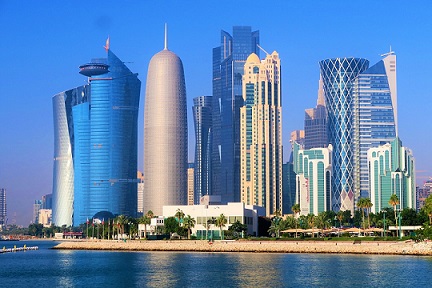
To help you create the best possible answers, I’ve included four things here:
- IELTS-style questions on the topics of buildings and architecture
- Sample answers
- A list of common buildings vocabulary with definitions & sample
sentences
- Links to online reading and listening resources
You’ll find PDF downloads of
both the questions and sample answers and the buildings vocabulary list at the
bottom of the respective sections.
The questions relate to the
Speaking test because this part of the exam offers the broadest range of
possible questions on this topic. They give the best opportunity for me to demonstrate
the vocabulary and for you to practise using it.
I’ve included IELTS-style
questions and answers for all three parts of the Speaking test. I’ve
highlighted keywords and phrases in bold.
You’ll find these words and
phrases, and many others, in the vocabulary list beneath. The list also
includes explanations and sample sentences and there’s an audio to listen to
the pronunciation.
The buildings vocabulary
list contains words and phrases relevant to all parts of the IELTS exam.
Finally, at the bottom of
the page, I’ve added links to topical articles, short videos and podcasts that
will help you to improve both your vocabulary and your reading and
listening skills.
IELTS-Style
Speaking Test Questions and Answers
Common buildings vocabulary
is highlighted in bold.
Part 1
1) What types of
buildings are there where you live?
In the town, there are
lots of Victorian houses constructed
from locally made bricks and some modern
shops and offices. We certainly don’t have any high-rise apartments or skyscrapers in the area.
2) Are there any monuments
in your hometown?
The most famous monument is a clock tower called the
Albert Clock in memory of Prince Albert the husband of Queen Victoria. There’s
also a war memorial in the park.
3) Do you like to
visit historic buildings?
Yes, I particularly
enjoy visiting old manor houses and
I’m lucky that there are several interesting ones in the area where I live. I
also like looking around old ruins
both in my own country and abroad.
4) What are the
landmarks in your hometown?
I’d say that there are
three – a church with a tall steeple,
a six-storey office block that’s an ugly monstrosity
and a hill that used to have an old castle
on it.
5) Have you ever
visited a famous structure?
When I was in
Australia, I went to the Sydney Opera House. It’s the most stunning piece of architecture
I’ve ever seen and such an iconic
building.

Part 2
Describe a style of architecture that you like.
You should say:
- what style it is
- what it looks like
- where you can see it
and explain why you like this style.
I like many different styles of architecture but my favourite is
probably Art Deco. The exterior of buildings designed in this style generally looks symmetrical. They’re not at all ornate, in fact, you’d say they were quite plain. Yet I find them
so beautiful, with elegant lines and
simple shapes.
The façade is often decorated with geometric
patterns created from straight lines or from stylised
designs based on plants, animals and sunrays like you see on Art Deco furniture, jewellery and other
artefacts of the 1920s and 1930s when the style was developed. The most popular
building material was concrete but glazed brick was also used.
Architects designed Art Deco houses, public buildings and commercial
buildings and most of them are still standing today. During the 20s and 30s,
many cinemas were built in towns and cities across the country. Lots of them
closed down when new multiplex movie theatres were constructed. Some fell into disrepair
and had to be demolished but others have
been renovated for use as shops and
their Art Deco features preserved.
There is one in my town which is now a night club.
Although it’s long
past its heyday, Art Deco has
remained popular as a design style and you can sometimes see it in modern buildings. For example, the new bus
station in my town has many Art Deco
features, in particular, the style of the windows, the shape and symmetry
of the building and the decoration around the large clock set in the wall.
For people who are
real fans of Art Deco architecture,
I recommend that they visit the town of Napier in New Zealand because almost
every building is Art Deco. It’s an
amazing place. They have tour guides to show you around and tell you about the
history of the town. Sadly it was destroyed in an earthquake in 1931 and
completely rebuild in the architectural style of the day – Art Deco. I don’t think there is anywhere
else in the world like it and I’m sure that it was my visit there that really
got me interested in this beautiful architectural style.

Part 3
1) What kinds of
people like to visit historic buildings?
In my country, people
of all ages and from many different backgrounds enjoy looking around historic buildings. At the weekends and
during school holidays they are popular with families who visit for a day out. Many
old manor houses have extensive
grounds which are ideal for the kids to run around and play in.
Lots of historic sites
offer educational tours and activities for schools as they are the perfect
place to learn about how people lived in the past. So, most historic houses get
school trips visiting. Old castles
are particularly popular with school kids.
Another common group
of visitors is retired people because they have plenty of time for leisure
activities. I think they are attracted by the tearooms as much all the
interesting things there are to look at and learn about as most historic houses
have one and they always serve delicious cakes.
Finally, I mustn’t forget
the tourists. For the most famous historic buildings, they are the largest
group of visitors.
2) Do you think it’s
worth the money to preserve old buildings?
That’s such a
difficult question to answer. It costs millions of pounds to preserve historic buildings and there are many other important things that the money could
be spent on. I suppose it depends where the money comes from.
I think it’s true to
say that most of the money spent on restoring
and maintaining the old
properties in my country comes from donations, entrance fees and charitable
funds. People want to visit historic
buildings and are happy to pay for them to be looked after. If the
government was responsible for their upkeep, it would be more difficult to
justify the huge costs involved.
Of course, historic
properties are part of our heritage
and that’s important preserve. They also attract a large number of overseas tourists
who contribute a significant amount to our economy.
So, weighing it up, I’d
have to say that I do think it’s worth the money to preserve old buildings.
3) How have buildings
changed in the past few years?
As far as houses are concerned, there are 3
main differences that I can think of. First, it’s now common to see three-storey homes on new housing estates
which you never used to get and there are not so many bungalows being built.
This is because there is less building land available than, say, twenty years
ago.
Second, new houses are more eco-friendly, with better insulation and improved double glazing to make them more energy efficient.
Third, there are new rules concerning
things like the width of doors and
the height of switches so that new properties are wheelchair friendly.
With regard to public buildings and commercial
buildings, the development of stronger building
materials and new construction techniques means that architects are beginning to design
more Futuristic buildings.

Click this link to get a PDF download of these practise questions & sample answers.
Download PDF Now
Buildings Vocabulary
* Important
- Do not try
and learn this list of buildings vocabulary.
- Identify
the vocabulary you find useful for answering practise questions about buildings and architecture.
- Record
these in your vocabulary notebook and practise using them regularly.
I recommend that you create
your own answers to the Speaking questions on this page. You will find many
other IELTS-style practise questions by searching online.
For help on how to learn
vocabulary, what to learn and how to record it, visit these pages:
How to Learn Vocabulary for
IELTS
Top 6 Types of IELTS
Vocabulary & Topic Word Lists
Buildings Vocabulary – Common Words & Phrases
Buildings Vocabulary Set 1: Key definitions
building – a structure that has a roof and
walls
— There used to be a field behind my
house but now it’s covered in buildings.
architecture
– the practise of designing buildings; the style in which buildings are made
— Paulo studied architecture
at university before joining the family building business.
— My favourite style of architecture
is Georgian because it is bold and beautiful but not too ornate.
architect
– a person who designs buildings
— Tammy’s friends laughed when she said she wanted to design
houses when she left school but she grew up to be an award-winning architect.
feature
– a
distinctive attribute or aspect of something
— The best feature
of the new church in our town is the stunning, modern spire.
façade
– the front of a building, especially a large or attractive building
— The British Museum in London is famous for its grand
Classical façade.
landmark
– an object or building that is easily seen and
recognized from a distance, especially one that enables someone to establish
their location
— The Eiffel Tower is probably the best-loved landmark in Paris.
heritage
– things, such as buildings and traditions, that are important to a nation’s
history
—
Some people complain that large historic houses cost a lot to maintain but they
are part of our heritage and should
be preserved.
Buildings Vocabulary Pronunciation
Buildings Vocabulary Set 2: Building Materials
building material
– any material which is used for construction purposes
— The
house would look fabulous when it was finished but at the moment it was little
more than a pile of building materials.
brick
– a
small rectangular block typically made of fired or sun-dried clay, used in
building
— They
decided to build their house with bricks
rather than concrete blocks.
concrete
– building material that is made by mixing together cement, sand, small stones
and water
— Concrete is a
very popular building material because it is strong and can be moulded into
different shapes.
reinforced concrete – concrete with metal bars or wire embedded
in to increase its strength
— Reinforced concrete is the perfect
material for constructing large structures such as tower blocks and bridges.
steel – a
strong hard metal that is made of a mixture of iron and carbon
— Modern
architects such as Zaha Hadid use steel
to create stunning Futuristic designs rather than just using it to form the
hidden framework of a building.
timber
– wood that is prepared for use in building
— In Sweden, timber
is a popular building material because they have lots of forests.
stone
– a hard, solid substance found in the ground, used for building
— Stone has been
used as a building material for centuries.
glass – a hard, brittle, man-made material that you can see through
— These days, they can make glass that is so strong that you can have whole walls made out of
it.
marble – a
type of hard stone, often with a beautiful lined pattern going through it, that
can be highly polished
—
The Taj Mahal is the most famous building in the world made from marble.
Buildings Vocabulary Pronunciation
Buildings Vocabulary Set 3: Types of building
See my Home Vocabulary list for 18 different types of house/accommodation.
Other types of building:
manor house
– a large country house surrounded by land that belongs to it
— It’s so nice to see the old manor house being renovated after the previous owners let it fall
into disrepair.
castle
– a
strong building, often large, built in the past by a ruler or important person
to protect the people inside from attack
— Most castles were
built on a hill so that the occupants could see the enemy approaching.
sky-scraper
– a very tall building
— With
the development of stronger building materials, they are able to build skyscrapers higher and higher.
office block – a
building made up of many different offices, often of different companies
—
Many old buildings in the city are being demolished to make way for smart new office blocks.
warehouse – large building built for the storage of raw
materials or manufactured goods before they are distributed for sale
— There is a real trend for converting old warehouses into fashionable apartments.
public building – a
building owned by the state or local government and used by the public, e.g.
townhall, library, museum, leisure centre
— Many
public buildings are quite old and
cost a lot of money to maintain
commercial building – buildings that are used
for commercial purposes, such as, office blocks,
shops and warehouses
— Most of my architect friends design houses but I much
prefer working on commercial buildings.
prefabricated
building (prefab)
– buildings that are made in sections in a factory and can
be put together quickly
— Prefabs were
popular after the war when many new homes had to be built quickly but are
coming back into fashion with new technology and modern designs.
historic building – an
old building that is important to history
— We
are fortunate in my country to have many magnificent historic buildings.
a ruin – a building reduced to a state of decay
and collapse
—
One of the most visited historic sites in the world is the Inca ruins at Machu Picchu in Peru.
monument – a statue, building, or other structure erected to commemorate
a notable person or event, often of historical importance
— India gate is one of the most recognisable monuments in India.
Buildings Vocabulary Pronunciation
Buildings Vocabulary Set 4: Features of buildings
column – large, upright pillar, typically
cylindrical, supporting the upper part of a building
— The
huge columns of many ruined Greek
temples are still standing today.
pillar – a tall vertical structure of stone, brick,
wood, or metal, used as a support for a building
— The roof was supported by two rows of brick pillars.
arch – a curved symmetrical structure spanning
an opening and typically supporting the weight of a bridge, roof, or wall above
it
— Old churches are one of the best places to
see impressive arches.
steeple – a
tall pointed roof, usually on a church
—
The church steeple could be seen for
many miles away from the town.
spire – similar
to a steeple but usually a narrower structure
— Skyscrapers
such as the Shanghai World Finance Center often have a spire built on top to make them taller and thus increase their prestige.
tower
– a
tall, narrow building, either free-standing or forming part of a large building
such as a church or castle
— There
was an amazing view over the city from the top of the tower.
dome – a rounded roof
—
The dome of the Hagia Sophia in Istanbul is one of the most recognisable domes in the world.
balcony – a
platform enclosed by a wall or bars on the outside of a building, with access
from an upper-floor window or door
— My dream home would have a balcony overlooking the sea.
Buildings Vocabulary Pronunciation
Buildings Vocabulary Set 5: Popular styles of architecture
(These words are all proper nouns so start with a capital letter.)
Classical – characteristic of the architecture of ancient Greece and Rome
Gothic – characterised by large expanses of glass, clustered columns, sharply pointed spires, intricate sculptures and pointed arches
Georgian – based on the simple elegance of classical architecture, with little ornamentation. Symmetry of design was important.
Victorian – characterised by sash windows set in bay windows, an asymmetrical shape, bright colours and decorative features
Art Deco – characterised by simple, clean shapes, usually with a ‘streamlined’ look and decoration that is geometric or stylised forms of plants, animals and sunrays
Islamic – known for its arches, domes, minarets, geometric designs, courtyards and often colourful tile decoration
Modernist – typically characterized by simple designs in glass, steel and reinforced concrete and no ornamentation
Futuristic – extremely modern and unusual in appearance, as if belonging to a future time
If there is a particular style of architecture that you like,
focus on that one and learn appropriate vocabulary related to it. There may
also be styles of architecture very specific to your own country.
If there’s a style of architecture common in your town or
city, learn the buildings vocabulary that will enable you to talk about it
easily.
Buildings Vocabulary Pronunciation
Buildings Vocabulary Set 6: Descriptions
elegant – graceful and stylish in appearance
— Amira loved the elegant
lines of the building’s Art Deco façade.
stunning – extremely impressive or attractive
—
Igor had doubts about the Futuristic design of the new library building but had
to admit that it looked absolutely stunning
when finished.
eye-catching – very attractive or noticeable
— She found the carved stone pillars
particularly eye-catching.
ornate
– covered with a lot of decoration,
especially complicated designs
— It’s common for grand manor houses to have ornate ceilings.
a radical design –
extreme
—
Pilau liked his buildings to stand out and was well-known for his radical designs.
controversial
– something that people have strong opinions about; something that people
either love or hate
— The design of the new town hall was certainly controversial and strongly opposed by
many people.
iconic
– in architecture, a design that is ‘ground-breaking’ and sets
new standards or a building that represents a
particular style of architecture
— The Sydney Opera House is Australia’s most iconic building.
state of the art
– incorporating
the newest ideas and features
— The new
hospital was state of the art and medical
professionals from across the country were eager to work there.
spacious
– having lots of space for people to move around in
— Older properties tend to have more spacious rooms than modern homes.
geometric – patterns or shapes consisting of regular shapes or
lines
—
Many styles of architecture incorporate geometric
designs both for strength as well for decoration.
symmetrical – where one side is the same as the other
— If you cut a symmetrical
design in half, one side is the mirror image of the other.
ugly / unsightly – unpleasant to look at; not attractive
— I think that the houses being built on many new housing
estates are really ugly.
monstrosity – a thing, especially a building, which is very large
and unsightly
— The
civic centre in our town, of typical 1960’s design, is a total monstrosity and
I wish they’d demolish it to build something more attractive.
eyesore
– a building that is not attractive
fall into disrepair
– to be in a damaged state, often to the extent that it is dangerous
— The cinema used to be a beautiful building but has become
a bit of an eyesore since it fell into disrepair.
past its heyday
– no longer at the peak of popularity or success
— Although Victorian
architecture is past its heyday, Victorian
townhouses are still very popular as they make spacious family homes.
derelict – in very
poor condition as a result of disuse and neglect
demolish
– completely destroy a building
They are going to demolish the derelict buildings down at the docks to make way for a development
of new waterside apartments.
Buildings Vocabulary Pronunciation
Buildings Vocabulary Set 7: Improving a property
See my Home Vocabulary list for some home improvement words and
phrases.
Here is some related buildings vocabulary:
preserve
– to keep looking the same
— The National Trust is a charity in the UK that is
dedicated to restoring and preserving
historical buildings.
transform
– to change something completely, usually to improve it
— The new owners transformed the derelict manor house into a stunning country hotel.
maintain – keep
something in a good condition by checking and repairing it regularly
— Old buildings generally cost more to maintain than ones built with
modern materials.
Buildings Vocabulary Pronunciation
Buildings Vocabulary Set 8: Buildings & the environment
energy efficient – using
little electricity, gas, etc.
—
These days, one of the most important considerations in building design and the
choice of building materials is energy
efficiency.
insulation –
material used to stop heat escaping
— In
cold climates, it’s important for buildings to be well insulated and glass fibre is often used as roof insulation.
double glazing – windows
which have two layers of glass with a space between them, designed to reduce the
loss of heat and exclude noise
— The
first thing they did to improve the old property was to put in double glazed windows.
eco-friendly –
not harmful to the environment
— Installing
solar panels to cut down on the use of fossil fuels is one of the best ways to
make your home eco-friendly.
wheelchair friendly – meets the needs of people who use a wheelchair in terms of access and internal services
— Historic
houses that are open to the public are required to make alterations to ensure that
they are as wheelchair friendly as is
practically possible.
Buildings Vocabulary Pronunciation
Buildings Vocabulary Set 9: Basic vocabulary
exterior – the outside of something, especially a building
— The exterior of the pretty little cottage was painted pink.
interior – the inside of something, especially a building
— The cottage had small windows, making the interior quite dark.
ceiling
– the top inside surface of a room
— A popular feature of Georgian properties is their high ceilings which make rooms feel really
spacious.
floor
– the
lower surface of a room that people walk on
— Bare
floorboards are very popular in the homes of today but I prefer carpet as it
makes floors warmer to walk on.
stairs
– a long set of steps inside a building joining the different levels
— The children were told not to leave their toys on the
landing in case someone tripped over them and fell down the stairs.
storey – a level of a building
— The
three-storey house with an extra
bedroom in the attic was perfect for Milek, Edyta and their four children.
fireplace – a
space in the wall at the base of a chimney for a fire to burn
— When people renovate Victorian properties they often remove
the old fireplaces but some keep
them as decorative features.
For
the vocabulary related to the different rooms in a house see my Home Vocabulary list.
Buildings Vocabulary Pronunciation
Buildings Vocabulary Set 10: Other vocabulary
blueprint – a design plan or other technical drawing
— Bruno and Claudia were so excited when the architect rang
to say that the blueprints of their
new house were ready for them to look at.
design
– a plan
or drawing produced to show the look of something, e.g. a building, before it
is created
— Rahul
worked closely with his clients to create a design that perfectly matched their idea of their dream home.
planning
permission – formal permission from a local authority for the
erection or alteration of a building
— It’s very difficult to get planning permission to make alterations to a historic building.
building site – an area of land on which a building or
a group of buildings is in the process of being built or altered
— It was fascinating watching the muddy building site gradually transformed into a smart new housing
estate.
to construct – to
build
— It
took five years to construct the Buri
Khalifa skyscraper in Dubai.
to put up – to build
— They are putting up an ugly office block on the site of the lovely old
theatre.
Buildings Vocabulary Pronunciation
Click this link to get a PDF download of this list of buildings vocabulary.
Download PDF Now
Ways to Improve Your Buildings Vocabulary
One of the best
ways to improve your buildings vocabulary is through reading. Watching topic related YouTube
videos and listening to podcasts is also hugely beneficial.
Here are some
online resources I recommend.
Articles
Architecture Week — excellent resource with articles on just about any topic you could think of
Dezeen
Magazine
The Independent — Architecture
BBC News — Architecture
TED Talks
I love TED Talks. They are short videos
with a powerful message and are generally very interesting. They’re ideal for
improving your vocabulary and give valuable listening skills practise.
Search TED Talks — Architecture to help you improve your buildings vocabulary.
All Topic Vocabulary
Like this page?
-
Home
-
IELTS Vocabulary
-
Buildings Vocabulary
›
›
-
Back To Top
-
Kings of B’More
When sixteen-year-old Harrison Meredith finds out that his best friend Linus Munro is moving away, he plans a surprise…
-
-
Far AwayLisa Graff
When twelve-year-old Caraway June Ames learns that she may lose the connection to her mom’s spirit in Far Away, she…
-
You Go FirstErin Entrada Kelly
Twelve-year old Charlotte Lockard lives in Pennsylvania while eleven-year-old Benjamin Boxer lives in Louisiana, but…
-
Katt vs. DoggJames Patterson and Chris Grabenstein
Molly the katt and Oscar the dogg belong to different families who hiss and growl at each other, but when they both get…
-
A Snicker of MagicNatalie Lloyd
Twelve-year-old Felicity Juniper Pickle, with the help of a mysterious Beedle, tries to bring magic back to the town of…
-
Unequal: A Story of AmericaMichael Eric Dyson and Marc Favreau
In this nonfiction story of America, the authors recount the struggles of key African Americans in the country’s march…
-
-
Sojourner Truth: Ain’t I a Woman?Patricia McKissack
This biography chronicles the life of Sojourner Truth, a woman who was born a slave, and who became the embodiment of…
-
Society and SolitudeRalph Waldo Emerson
In this collection of twelve essays, the leader of New England’s transcendentalist movement shares his philosophical…
-
-
-
Common SenseThomas Paine
In this pamphlet, Paine urges the American colonists to fight for independence from Great Britain and form a new…
Ramadan
Ramadan is the ninth month of the Islamic calendar, when Muhammad’s first revelation of the Quran is…
20 Words
Holi Festival
Holi – the Festival of Colors, Festival of Spring, and Festival of Love – is one of the most popular…
20 Words
We hope that after learning these words you’ll be able to clearly understand the conversation related to construction.

By
Last updated:
December 6, 2022
One of the largest English dictionaries has more than 21,000 pages.
Here’s something even more impressive: someone actually attempted to read it from start to finish in one year.
Don’t worry though—you don’t need to do all that to master English.
Master the most common 3,000 words, and you’ll pick up 90% of what you’re hearing and reading.
Bump that up to around 10,000, and you’re considered fluent.
In this post, we’ve put together all of our best English vocabulary lists.
Travel English? Business English? Slang words? We’ve got them all here!
Contents
- Core English Vocabulary
-
- Common English words
- Important specific words
- Easily confused words
- Time, day and months vocab
- Friends, Family and home
- Romance and love vocabulary
- Travel and survival English
- Food, drink and eating out
- Hobbies
- Nature-related words
- Advanced English Vocabulary
-
- Difficult English words
- Business and professional English
- Word Parts and Components
- English Slang
-
- Regional English Slang
-
- American English
- Australian English
- British English
- New Zealand English
- More Fun English Vocabulary
-
- Holidays in English
- Miscellaneous fun English vocabulary
Download:
This blog post is available as a convenient and portable PDF that you
can take anywhere.
Click here to get a copy. (Download)
Core English Vocabulary
Use English pretty often, and you’ll notice that the same words keep popping up over and over.
In this section, we’ll tackle the core English vocabulary that you need to know, from articles such as a and the to friendly greetings and ordering from restaurants like a local.
This is the practical type of English that’s meant for your day-to-day life—whether you’re chatting with friends, traveling or about to go on a date!
Common English words
Important specific words
Easily confused words
Time, day and months vocab
Friends, Family and home
Romance and love vocabulary
Travel and survival English
Food, drink and eating out
Hobbies
Nature-related words
Advanced English Vocabulary
Already feel confident with basic English but you want to expand your vocabulary? Then you might be ready to move on to more advanced English!
You can delve into widely known but more complicated words like illusion and runners-up. Or maybe you’d want to find out all about common word roots (they’ll boost your comprehension right away!). There’s also the weird but wonderful world of homophones, where two words sound alike but have different meanings.
Deepen your understanding of English with these blog posts:
Difficult English words
https://www.fluentu.com/blog/english/difficult-english-words/
https://www.fluentu.com/blog/english/english-hard-words/
Business and professional English
Word Parts and Components
English Slang
Once you’ve got the foundations of English down, one way to sound even more natural is to learn slang. If you read through any English-language social media website—Twitter, Youtube, Facebook or Reddit, for example—you’ll see lots of slang:
Don’t be such a couch potato.
TBH, I haven’t seen that meme yet.
This summer, I’m going to YOLO.
Slang tends to pop up in informal or casual conversations as well as online. Different English countries can also have different slang!
Regional English Slang
American English
Australian English
British English
New Zealand English
More Fun English Vocabulary
When it comes to English vocabulary, you’ll keep finding fascinating words.
For one, there are words for special occasions. Some of the most prominent English-speaking holidays are Valentine’s Day, Easter, Thanksgiving and Christmas, and they each have their own unique vocabulary.
The English language also has tons of interesting niches you can look into. Broaden your tech speak in English with words like “download” and “screenshot,” or get trendy with some of the newest words in the language!
Make your English more colorful with these guides:
Holidays in English
Miscellaneous fun English vocabulary
Constantly learning vocabulary is a key part of becoming fluent.
It’s fascinating to see how communicating in English becomes easier as you pick up more and more words!
With this master sheet of resources, you can grow your vocabulary—from building a foundation with the most basic words to expressing yourself like a native.
Skip to content
Memorizing English vocabulary is a necessary step to speak English. Designed for school or personal use, these English words lists allows you to enrich your vocabulary in a targeted and effective way.
Each lesson contains hundreds of English words that you can memorize easily, classified and indexed into different themes of daily life to cover all the most used and most common vocabulary in English: family, geography, sport, professions, media, travel and everyday topics…
This page will be useful both as part of individual learning whether you are a student, traveller or professional, and as a complement to school work.
All the words lists on this page are free to download in PDF so you will always have at hand a simple and concise reference tool to find the right word in all circumstances. You will need to use a dictionary to search for the meaning of words you don’t already know. With the help of those lists, you will be able to understand words that you do not know from their context, and thus enrich your vocabulary even more as you go along.
If you are teaching or learning ESL, you can use those essential English vocabulary lists to help you in your lessons. You can also use these words lists if you are preparing for the IELTS exam.
English vocabulary list (include free PDF)
- Domestic animals and farm animals
- Zoo animals
- The birds
- The insects
- Aquatic animals
- Nature
- Feelings and emotions
- The environment
- Hospitality
- Clothing
- Transportation
- The family
- Politics & Government
- Travel & tourism
- The human body
- Physical description: the face
- Health and Medicine
- The astrological signs
- Halloween
- Business
- Fruits and vegetables
- The Weather
- Movies & cinema
- Christmas
- The House
- Real estate
- Marketing
- Finance
- IT & internet
- Job interview
- Immigration
- Sciences
- Journalism & press
- Good and bad qualities
- Money and banking
- Photography
- The religion
- The five senses
- Love and wedding
- Beach and seaside
- War and peace
- History and past
- Sport
- Cycling
- Trains and railways
- Trees, plants and gardening
- Mythology and heroes
- Music
- Hobbies
- The city
- Architecture and construction
- Bathroom items
- Education and school
- Soccer
- Wine
- Kitchen utensils
- Routine & daily life
- Communication
- Food & nutrition
- Gestures and positions
- Personality: character and behavior
- Astronomy, space and universe
- Natural disasters
- Accidents and injuries
- Crimes
- The quantities
- List of jobs in English
- Expressing opinion
- At the airport
- Logistics
- Food & drinks
- Linking words
- Accounting
- Materials
- Law and Legal terms
- Business and Economics
- Useful adjectives (A to C)
- Useful adjectives (D to H)
- Useful adjectives (I to O)
- Useful adjectives (P to S)
- Useful adjectives (T to Z)
- 100 most common Phrasal verbs list
- List of adverbs
- 100 most used English verbs
- 100 English verbs of body movement and action
- 100 most common English adverbs
As part of our commitment to helping people to build and expand their vocabulary; V2 has developed several vocabulary lists that will aid you with your vocabulary training. Each of our lists includes user friendly definitions and real-life usage examples. The best part of our vocabulary lists is that they are free!
Below is a list of our Free Vocabulary Lists that are available for download:
High School Vocabulary List
This list of words includes words you must know for high school English as well as words you must know to study for the SAT/ACT exam.
College Vocabulary List
This list of words includes words that you will likely see in your college text books. This list also includes words that you will most likely see on the GRE or GMAT exam if you decide to go to graduate school
SAT Vocabulary List
This list of words includes the 100 most important words to study for the SAT. This list of vocabulary words teaches the words that are most likely to appear on your next SAT exam. If you are preparing for the SAT, you must download this FREE SAT Vocabulary List of the most important words for the SAT.
GRE Word List
This list of words includes the 100 most important words to study for the GRE exam. These 100 GRE Vocabulary words are the words that are most likely to appear on your GRE Test. Be sure you learn all 100 of these words if you want to earn a high score on the GRE exam.
GMAT Vocabulary List
This GMAT vocabulary list provides word lessons for 100 words that commonly appear in the reading and comprehension section of the GMAT test. If you want to earn a high score on the GMAT Verbal section, be sure to study these 100 words
TOEFL Essential Vocabulary Word List
This TOEFL word list includes 100 advanced vocabulary words that are essential to earning a high score on the TOEFL.
TOEIC Vocabulary Word List
This TOEFL word list includes 100 advanced vocabulary words that are essential to earning a high score on the TOEFL
FREE Vocabulary Course by E-mail!
Drop your details in the boxes below to receive a FREE vocabulary course:
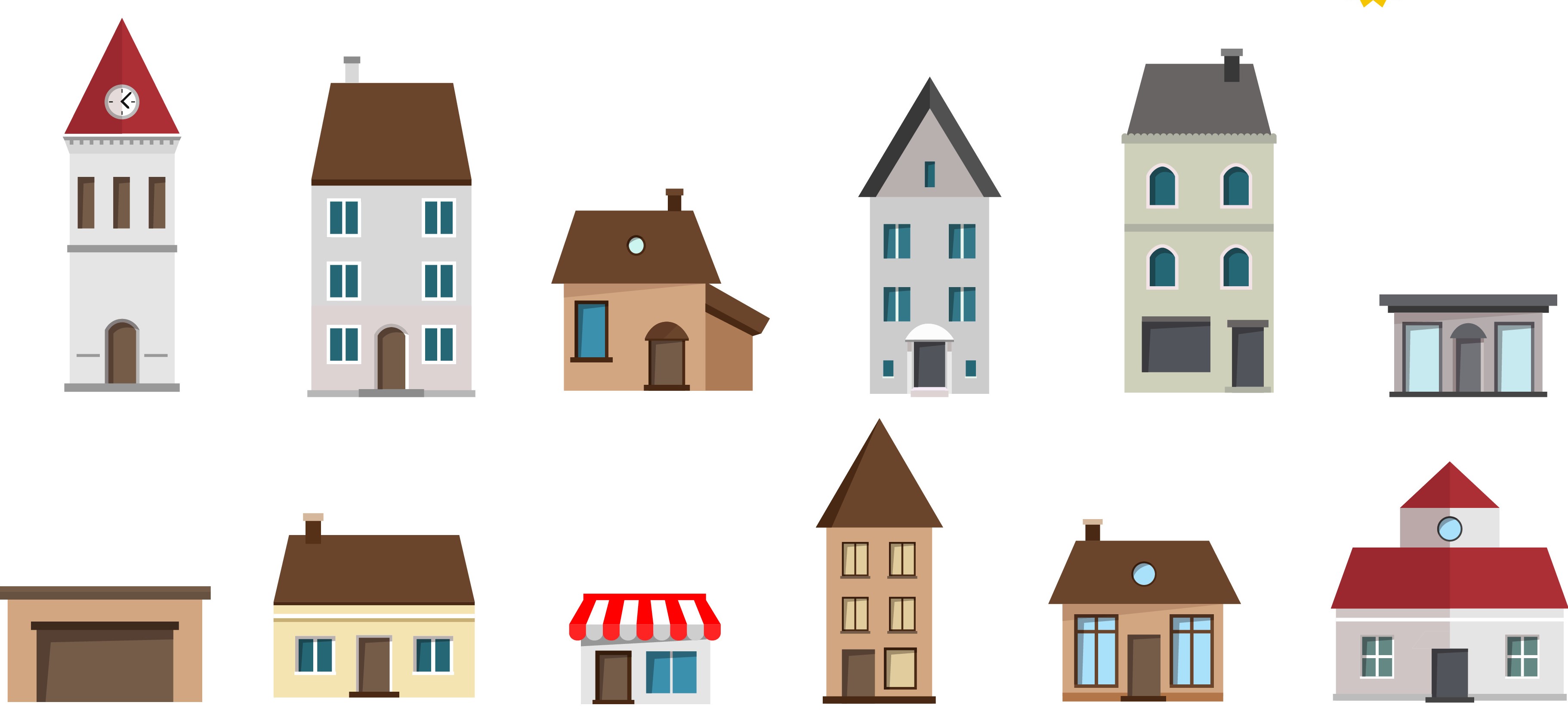
Useful Vocabulary
Where We Live
|
|
|
|
|
|
| cottage(s) | detached house(s) | semi-detached house(s) | bungalow(s) | terraced house(s) |
|---|---|---|---|---|
|
|
|
|||
| block of flats | high-rise flat(s) |
!Note — no matter what kind of building you live in, it’s your home.
Where We Work
|
|
|
|
||
| office(s) | factory (factories) | skyscraper(s) |
|---|
Miscellaneous Places
|
|
|
|
|
||
| tower(s) | mill(s) | windmill(s) | castle(s) |
|---|
Build Up
Special Buildings
| Airport | |
|---|---|
| Art Gallery | |
| Bank | |
| Bus Station | |
 |
Church |
 |
Cinema |
| Fire Station | |
| Garage | |
| Hospital | |
| Hotel | |
 |
Mosque |
 |
Museum |
| Police Station | |
| Railway Station | |
 |
Restaurant |
 |
School |
 |
Synagogue |
| Theatre |
Naturally Speaking
Talking to a builder / developer.
| Can you provide references and examples of your previous work? | (Here references are comments on the abilities and character of a candidate organisation for a position or job.) |
|---|---|
| Are you able to provide a bank reference? | (Here a bank reference is a statement regarding the financial standing of an individual or organisation.) |
| Will you provide a list of all the materials you’ll use and provide samples? | (Here a sample is an amount of something that shows you what the rest is or should be like.) |
| Do you use sub contractors? | (A subcontractor is a person or organization that performs work for the main contractor, but is not on their payroll and does not receive company benefits.) |
| What warranty do you offer, and what is the time period of this warranty? | (A warranty is a written guarantee of the integrity of a product and of the maker’s responsibility for the repair or replacement of defective parts. In the UK the NHBC is the UK’s leading warranty provider for new homes. ‘Buildmark’ is the name of their 10-year warranty.) |
| We will be using a snagging company. Is this ok? | (Here snagging means to write a list of defects at the end of a build process/phase/stage (a «Snag List» or «Snagging List»). A snagging company goes through a house to find faults and ensures the developer puts them right within a reasonable time.) |
Dialogue
Here is a conversation between Joan and her husband Steve.
| It’s Monday morning and something is happening next door. |
|
|---|---|
| Joan: | Steve, what’s all that noise outside? |
| Steve: | Just a minute, I’ll have a look. ……. Oh! It looks as if the new next door neighbours are moving in. |
| Joan: | It’s a bit early, isn’t it? Ah well I guess we’d better get ready for work. |
| Steve: | It’s amazing how quickly the houses are selling round here, the Browns only put theirs on the market about a month ago. |
| Joan: | Where did they move to in the end? |
| Steve: | I think he told me they were buying a detached house in Surbiton. |
| Joan: | Sounds lovely. I hope the new neighbours are nice. |
| Steve: | Well, I was speaking with Mr Brown last week. He told me they were a young couple with two daughters. They liked the house because the school here has a good reputation. |
| Joan: | Two daughters! That will please John. |
| Steve: | Maybe we’d better pop next door and say hello. |
| Joan: | Yes, and maybe we’d better start thinking of selling as well. I fancy a detached house in Surbiton too. |
| Steve: | Hmm? |
Games and Tests for this Vocabulary Unit
All these games and tests open in a new window.

